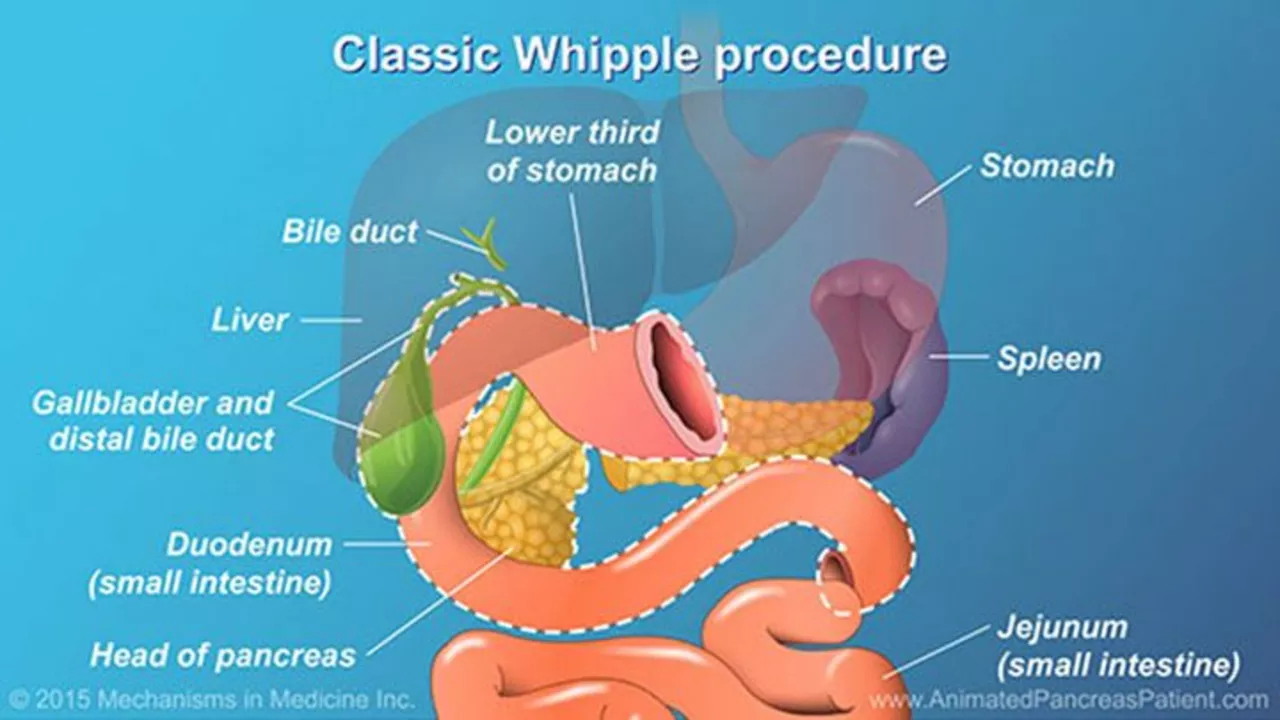Understanding Whipple Surgery and Pancrelipase
Before diving into the benefits of pancrelipase for post-Whipple surgery patients, it is important to have a clear understanding of what Whipple surgery is and what role pancrelipase plays in the recovery process. Whipple surgery, also known as pancreaticoduodenectomy, is a complex procedure that involves the removal of the head of the pancreas, the duodenum, a portion of the stomach, and the bile duct. This surgery is commonly performed to treat pancreatic cancer or other conditions affecting the pancreas.
Pancrelipase is a medication that consists of digestive enzymes, including lipase, protease, and amylase. These enzymes are naturally produced by the pancreas and are essential for the proper digestion and absorption of nutrients. After Whipple surgery, the pancreas may not produce sufficient levels of these enzymes, leading to digestive issues and malabsorption. Pancrelipase acts as a supplement, providing the essential enzymes and aiding in the digestive process.
Improved Nutrient Absorption
One of the primary benefits of pancrelipase for post-Whipple surgery patients is its ability to improve nutrient absorption. After the surgery, the pancreas' capacity to produce digestive enzymes is often diminished. This can result in difficulty breaking down and absorbing essential nutrients such as proteins, fats, and carbohydrates. Pancrelipase supplements the natural enzymes, ensuring that the body has adequate levels to properly digest food and absorb nutrients. This is essential for maintaining overall health and aiding in the recovery process.
Furthermore, improved nutrient absorption can help prevent malnutrition, a common complication following Whipple surgery. Malnutrition can lead to a weakened immune system, slower healing, and an increased risk of infection. By supporting proper digestion and nutrient absorption, pancrelipase can play a vital role in preventing these complications.
Reduced Gastrointestinal Symptoms
Post-Whipple surgery patients often experience a range of gastrointestinal symptoms, such as bloating, gas, abdominal pain, and diarrhea. These symptoms can be attributed to the reduced production of digestive enzymes and the subsequent malabsorption of nutrients. Pancrelipase can help alleviate these symptoms by providing the necessary enzymes to break down food and promote proper digestion. In turn, this helps to reduce the frequency and severity of gastrointestinal symptoms, making the recovery process more comfortable for the patient.
Moreover, by reducing gastrointestinal symptoms, pancrelipase can also help improve patients' overall quality of life. Experiencing constant discomfort and pain can be mentally and emotionally taxing. By managing these symptoms, pancrelipase can help patients enjoy a better quality of life during their recovery.
Enhanced Energy Levels
Inadequate nutrient absorption can lead to reduced energy levels, as the body is unable to effectively convert food into energy. This can be particularly problematic for post-Whipple surgery patients, who require ample energy to heal and recover from the procedure. Pancrelipase helps to ensure that the body is able to properly break down and absorb nutrients, providing the energy needed for recovery.
Increased energy levels can also contribute to an improved quality of life for patients, allowing them to participate in activities and maintain a more normal lifestyle during their recovery period. This can be particularly important for emotional well-being and overall mental health.
Weight Maintenance and Gain
Weight loss is a common issue faced by post-Whipple surgery patients, as a result of both reduced appetite and inadequate nutrient absorption. Pancrelipase can help support weight maintenance and even weight gain by ensuring proper digestion and absorption of nutrients. This is particularly important for patients who were already experiencing weight loss before the surgery, as maintaining a healthy weight is crucial for overall health and recovery.
Moreover, proper weight maintenance can help prevent additional complications that may arise from malnutrition, such as muscle wasting, a weakened immune system, and impaired wound healing.
Faster Recovery Time
By supporting proper nutrient absorption and digestion, pancrelipase can help promote a faster recovery time for post-Whipple surgery patients. Adequate nutrient intake is essential for the body to heal and repair itself, and pancrelipase ensures that the necessary nutrients are available for this process. This can lead to a quicker recovery time, allowing patients to return to their normal activities sooner.
Furthermore, a faster recovery time can also help reduce the risk of complications that may arise from prolonged immobility, such as blood clots, muscle wasting, and pressure sores.
Reduced Risk of Infections
Following Whipple surgery, patients may be at an increased risk of developing infections due to a weakened immune system caused by malnutrition. Pancrelipase can help reduce this risk by promoting proper digestion and absorption of nutrients, which in turn helps to strengthen the immune system. A strong immune system is essential for fighting off infections and preventing complications during the recovery process.
Additionally, pancrelipase can also help support wound healing, another critical factor in preventing infections post-surgery. By ensuring that the body has the necessary nutrients to repair and heal itself, pancrelipase can contribute to an overall reduced risk of infections.
Improved Appetite
Many post-Whipple surgery patients experience a decreased appetite due to gastrointestinal symptoms and changes in their digestive system. Pancrelipase can help improve appetite by reducing these symptoms and promoting proper digestion. A healthy appetite is essential for maintaining adequate nutrient intake and supporting the recovery process.
Furthermore, an improved appetite can also help patients maintain a healthier relationship with food, which can be particularly important for emotional well-being and mental health during the recovery period.
Convenience and Ease of Use
Pancrelipase is available in various forms, including capsules, tablets, and powders. This variety allows patients and healthcare providers to choose the most suitable form based on individual preferences and needs. The medication can be taken with meals and snacks, making it easy to incorporate into the patient's daily routine. This convenience and ease of use can help support better adherence to the prescribed treatment plan, ultimately contributing to better outcomes and a smoother recovery process.
Additionally, the dosing of pancrelipase can be adjusted according to the patient's specific needs, ensuring that they receive the appropriate amount of enzymes to support proper digestion and nutrient absorption.
Comprehensive Support for Post-Whipple Surgery Recovery
Overall, pancrelipase offers comprehensive support for post-Whipple surgery patients, addressing various aspects of their recovery process. From improved nutrient absorption and reduced gastrointestinal symptoms to enhanced energy levels and a faster recovery time, pancrelipase provides essential benefits that can help patients achieve better outcomes and a higher quality of life during their recovery. By working closely with their healthcare providers, patients can develop an individualized treatment plan that incorporates pancrelipase and other supportive measures to promote a smooth and successful recovery after Whipple surgery.




